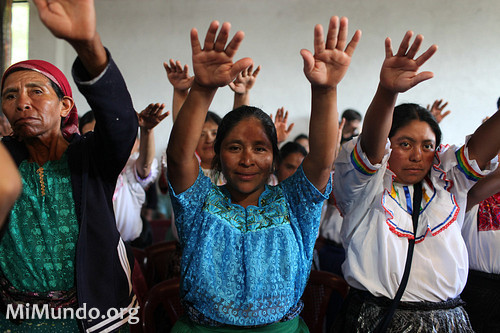First International People's Health Tribunal Held in Guatemala
 by Beth Geglia and Cyril Mychalejko, Toward Freedom
by Beth Geglia and Cyril Mychalejko, Toward Freedom
“A few years ago, our people, the people you can see around you, we began to realize what was happening,” Maudilia López told the hundreds gathered to attend the first ever People's Health Tribunal in San Miguel Ixtahuacán, Guatemala. The event was packed, even as some attendees spilled out of the entrance of the crowded room, others shuffled to find a spot.
The International Peoples’ Health Tribunal (IPHT) took place on the second floor of the parish hall of San Miguel Ixtahuacán, a municipality in Guatemala's western Highlands of roughly 60,000 people, a majority of whom are Maya-Mam. San Miguel Ixtahuacán is the main site of the Marlin mine, an open-pit gold mine that is one of the most important projects of Canadian mining giant Goldcorp Inc.
Recent Updates
19 hours 48 min ago
20 hours 2 min ago
20 hours 21 min ago
2 days 21 hours ago
2 days 22 hours ago
2 days 22 hours ago
3 days 23 hours ago
3 days 23 hours ago
4 days 1 hour ago
4 days 1 hour ago